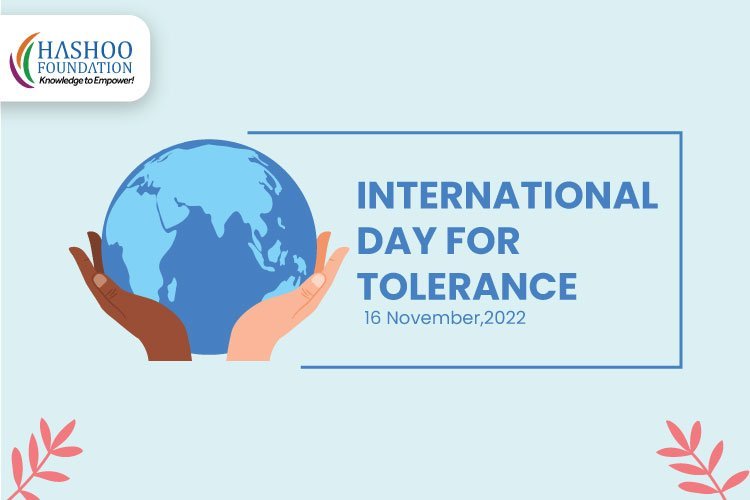 “Tolerance is respect, acceptance, and appreciation of the rich diversity of our world’s cultures, our forms of expression and ways of being human.”
“Tolerance is respect, acceptance, and appreciation of the rich diversity of our world’s cultures, our forms of expression and ways of being human.”
The 16th of November has been designated the International Day of Tolerance since Resolution 51/95 was passed by the United Nations General Assembly in 1996. A primary goal of the UN is to promote understanding and acceptance among the world’s various ethnic groups and religions. The growing violence today has only highlighted the necessity of tolerance in the modern world. The hallmark of a tolerant person is an appreciation for the autonomy of those individuals, who are different from oneself. Being tolerant of others is not only the right thing to do but also a need in today’s world. To foster acceptance and prevent violence, states should enact laws protecting fundamental human rights and fair treatment. To achieve these goals, educating individuals and concerned bodies is crucial.
Considering Pakistan’s current political scenario, the Declaration recognizes tolerance as a political and legal obligation for all individuals, communities, and states. It underlines the importance of states creating new laws as necessary to provide fair treatment and equal opportunities for all members of society. In a world where intolerance, violence, terrorism, and racism are on the rise, we feel compelled to show our solidarity today for the globe’s ethnic, racial, religious, linguistic, and migratory minorities, as well as refugees, migrant workers, and immigrants. Building trust and acceptance among members of different cultures will require a lot of work and time. Education promotes mutual understanding and acceptance among people of different backgrounds and cultures. Ignorance and nervousness are familiar sources of intolerance. An inflated sense of self-importance is the root cause of intolerance. Intolerant people tend to have inflated views of their importance and superiority. Therefore, it will be increasingly important to teach kids about diversity, equality, and respect in the following years.
Therefore, it is our responsibility as parents, legislators, and law enforcement officers to preach to individuals to be tolerant on a fundamental, systemic, and institutional basis. As a yearly reminder, an International Day of Tolerance can be used to promote understanding and acceptance. Intolerant issues, both domestic and international, need to be discussed. Complex arguments for and against tolerance will emerge, allowing for new approaches to bridging existing divides. Jealousy and unhappiness stem from a lack of tolerance. It drains our mental resources and causes us to expand our efforts in vain. It ruins calm and distracts us from our mission. Therefore, intolerance leads nowhere good. Tolerance, however, proves essential in keeping the peace in tense circumstances. The opposite of intolerance is not just calm and contentment but a complete mental collapse. When we’re in a condition of tolerance, our minds are at peace, and our intellects are leading us toward our goals, not pushing us toward intolerance.